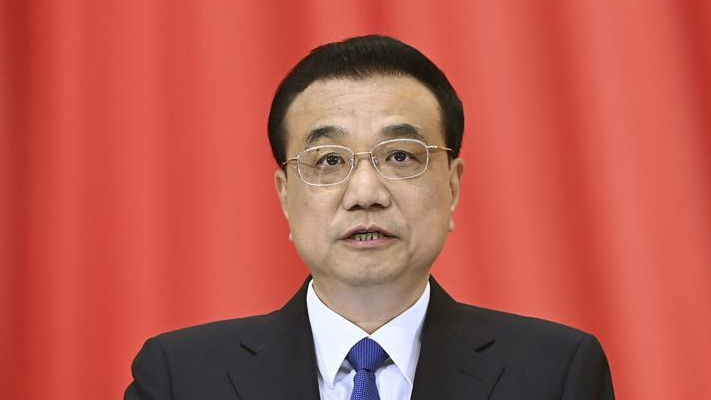It was positive, pragmatic and a sober assessment of the situation.
BEIJING: Delayed by two months because of Covid-19, Premier Li opened China’s much anticipated Two Sessions, the annual legislative meeting, with a sober and pragmatic assessment of the previous year’s progress, the challenges being faced and the government’s plans going forward.
Premier Li’s speech is the equivalent of the US President’s State of the Union address. It has always been closely watched, as it usually gave China’s forward going growth expectations. This year the government has gone without a forward GDP number, which is sure to be the subject of speculation and debate as the world digests Li’s speech.
Premier Li followed the usual general format, starting with a review of the past year, the challenges being faced and a comprehensive list of expenditures and programs the government will be implementing to deal with the Covid-19 health crisis and its economic consequences.
The words that seemed to be used most were: employment, income growth, living standards, poverty eradication, development, SMEs, reform, belt tightening, cost cutting and “open door”.
Rather than going with specific economic targets, China will go with a set of priorities that emphasise job creation, maintaining and growing living standards, targeted fiscal and monetary stimulation, supporting local governments, education, the environment and business (especially SMEs).
For its part, the Central government will lead by example, cutting bureaucratic red tape and non-essential spending. Risk management was a reoccurring theme, making it clear that the government is using the lessons learned from the 2009 US financial crisis. Rather than a shotgun blast, the government is using a much more targeted approach, which addresses every part of the Chinese system and people.
In terms of the international situation, less space was given to China’s outward focus, other than reiterating the government’s support for international institutions and core economic policies like the Belt and Road Initiative and the “open door” policy, aimed at further opening China’s economy to the world.
The stated desire to have a more balanced trade position, where imports and exports are equalized, appears to be a nod towards China’s commitment to the US-China Phase One Trade Deal.
Li’s speech offers a sharp contrast to countries and leaders in other countries who are still struggling with the health and economic effects of Covid-19.
It was positive, pragmatic and a sober assessment that gave enough details to decipher how Beijing is looking at its, and the world’s, circumstances.
Hot topics internationally will include the military budget increase, although the lowest increase in a number of years. Red meat for China hawks.
The use of bonds will provide funding and liquidity for infrastructure programs, local governments and the social safety net. The rest of the world will watch with interestas China begins its first large scale reopening since the beginning of the pandemic.
In terms of Hong Kong, Li’s reference to “accurately” implementing the “one country, two systems” and the principles of “the Hong Kong people governing Hong Kong”, is already front page discussion. Markets are reacting, while pundits speculate.
The background of this issue is that under the Basic Law, the Hong Kong government was required to enact a national security law, prohibiting acts of “treason, secession, sedition, or subversion” as part of Article 23. The desire was to discourage any interference with China’s sovereign rights over Hong Kong, which was seized by Great Britain in the 1800s, as part of Great Britain’s opium monopoly in China.
Along these lines Li also rejected Taiwanese separatist activities, urging a return to better relations and cooperation with Taiwan, towards the goal of a peaceful reunification. Most will see this as a mild reminder that China and Taiwan are inseparable, but expect Mike Pompeo and others to try to turn it into a red flag.
Economically, Beijing will continue to encourage foreign investment through further cuts to the negative lists, economic areas and industries which were off limits. So far this year China has been one of the few bright spots on inbound FDI, a trend Beijing is anxious to encourage.
In terms of the US-China Phase One deal, Li expressed continued support for complying with the deal. This will be viewed as a direct response to Donald Trump’s vacillation on the deal.
Li carefully painted the lines clearly, but not stridently, in terms of its sovereign and international interests. Li is trying to show China is doing the right thing, unfortunately, he is in a media environment where China can do nothing right.
Einar Tangen is a Beijing-based China analyst.

